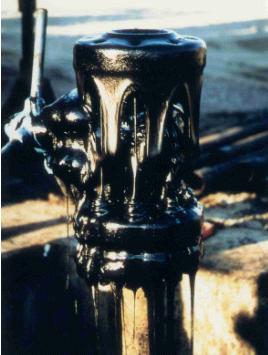 You often hear analysts say that they have a particular target price for a stock or a commodity. That means that in their heads they expect the value of that thing to hit that price over a certain period of time. But now we have OPEC saying that they have a target price of $75 per barrel of oil.
You often hear analysts say that they have a particular target price for a stock or a commodity. That means that in their heads they expect the value of that thing to hit that price over a certain period of time. But now we have OPEC saying that they have a target price of $75 per barrel of oil.
YEAH RIGHT.
One of two things is the case here. Either OPEC has no price control, or they are simply lying, and they really just want the price as high as it will go, as it did go in the summer. I tend to think both. For one thing, the statement may be a sap to Iran and Venezuela, who have been publicly pushing for a cut in order to get prices back up to stabilize their own oil-based economies.
What seems to have happened with oil is that the speculators had their day both ways. First they drove the price up, and then they drove it down. They were helped a little bit by demand having first climbed, and then fallen. Once prices were clearly dropping, they piled on and just drove them down further.
So where is OPEC’s role in setting the price? How many millions of barrels will they have to cut in order to have a significant impact on prices? The general economic answer would be that they would have to stop supplying the world with enough oil to meet current demand, a shrinking target, as we speak.
So why have prices stablized at $50 or so? Who can say? Perhaps traders believe that demand has leveled off and is now stable. Perhaps there is simply a consensus view as to what production and the econony will be 90 days from now, and it is reflected in that price.
Two things have happened this weekend that should make Monday trading very interesting. First, Black Friday has come and gone. This will give some indication as to the state of U.S. retail, and hence a good portion of the economy. Second, OPEC has said that they will not cut current production levels.
If Black Friday turns out to have run red, then we may well see yet a larger drop in demand, based on lower production. Butt his depends on whether or not producers have already anticipated a miserable Christmas season. Even so, Monday will be very interesting. When you see reports about this weekend’s retail sales, think of oil.
 Anyone not under a rock can’t help but notice the price of oil having skyrocketed. $4.00 per gallon prices may seem like a lot, and indeed they are compared to what they were, and so President Bush has decided to wage a war to attempt to get domestic production up. That means drilling off the shores of Florida and California and in the ANWR National Reserve in Alaska.
Anyone not under a rock can’t help but notice the price of oil having skyrocketed. $4.00 per gallon prices may seem like a lot, and indeed they are compared to what they were, and so President Bush has decided to wage a war to attempt to get domestic production up. That means drilling off the shores of Florida and California and in the ANWR National Reserve in Alaska.